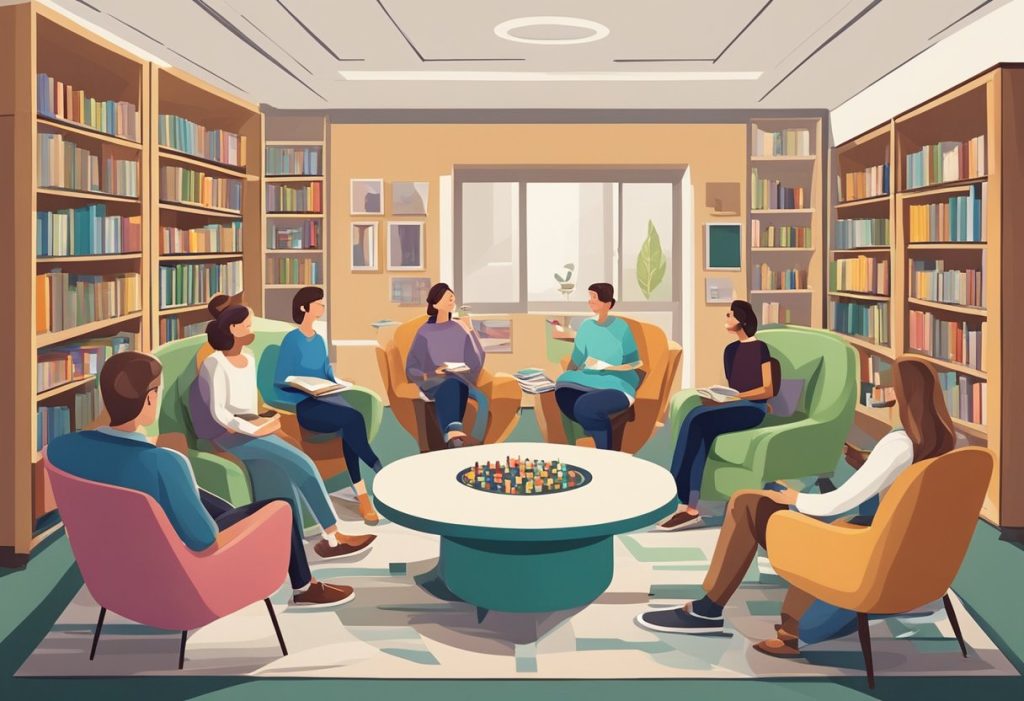When you buy through our links, we may earn a commission. Learn more.
Creating connections and fostering communication can be challenging, especially in small groups. Yet, planning engaging and fun group activities for adults can significantly enhance bonding and teamwork. At Best Kidult, we’ve curated some of the best activities that promote interaction and entertainment.
For those looking to inspire communication and creativity, simple tasks like building a paper tower can be incredibly effective. This activity needs just a few sheets of paper and encourages team members to collaborate and strategize. On the other hand, a marshmallow challenge adds a fun twist to problem-solving by requiring teams to create structures using spaghetti, tape, and marshmallows.
In addition to structured games, sometimes more leisurely activities like a pottery class can be the best way to foster a relaxed bonding environment. Whether assembling a water balloon challenge or engaging in a mock polo game, these experiences offer something memorable and meaningful for everyone involved.
Exploring Small Group Activities
Small group activities for adults can enhance communication and foster deeper connections among participants. These activities vary from creative games to team-building exercises, each with unique benefits.
Types of Activities
Various types of activities cater to different goals such as bonding, problem-solving, and creativity. Icebreaker games like Two Truths and a Lie are great for helping people get to know each other quickly. For those looking to improve teamwork, activities like Paper Tower are effective in promoting collaboration.
Creative games like Pictionary and Charades stimulate the imagination and provide a fun challenge. Trust-building activities such as Scavenger Hunts also encourage participants to work together closely, enhancing mutual appreciation and cooperation. Overall, these diverse activities can be tailored to meet a group’s specific needs and preferences.
Benefits of Group Activities
Engaging in small group activities offers multiple benefits. First, they foster communication by creating an environment that encourages open dialogue and sharing. Activities like Jenga require participants to strategize and communicate effectively, strengthening teamwork.
These activities also improve problem-solving skills. For example, the Water Balloon game challenges groups to find creative solutions quickly. In addition, such activities can help build trust among members, which is essential for any cohesive team.
Finally, these activities motivate and unite groups, making participants feel more connected and engaged. By involving everyone, whether through a trust game or a fun icebreaker, we can boost morale and create lasting connections.
Facilitating Effective Small Group Dynamics
To foster a productive small group, we must focus on key roles and strategies. A facilitator plays a vital role in guiding team members and maintaining structure, communication, and creativity.
Role of the Facilitator
The facilitator’s job is to guide the group through activities and discussions. They help ensure everyone participates, starting with icebreaker activities to get team members comfortable.
By setting clear tasks and goals, they keep the group focused. They also create a safe environment, encouraging open communication and idea sharing. This helps the group circle back to core objectives and boosts productivity.
Facilitators must balance leading and listening. It’s important to step back when necessary, allowing team members to explore their creativity. This helps cultivate a collaborative atmosphere.
I’m Cartez Augustus, a content creator based in Houston, Texas. I’ve been exploring a variety of niches in content marketing in order to increase website traffic. I enjoy experimenting with artificial intelligence, search engine optimization, and paid search. The process of creating nerd-related content has been extremely rewarding since it has enabled me to network with people who are knowledgeable about these subjects.


